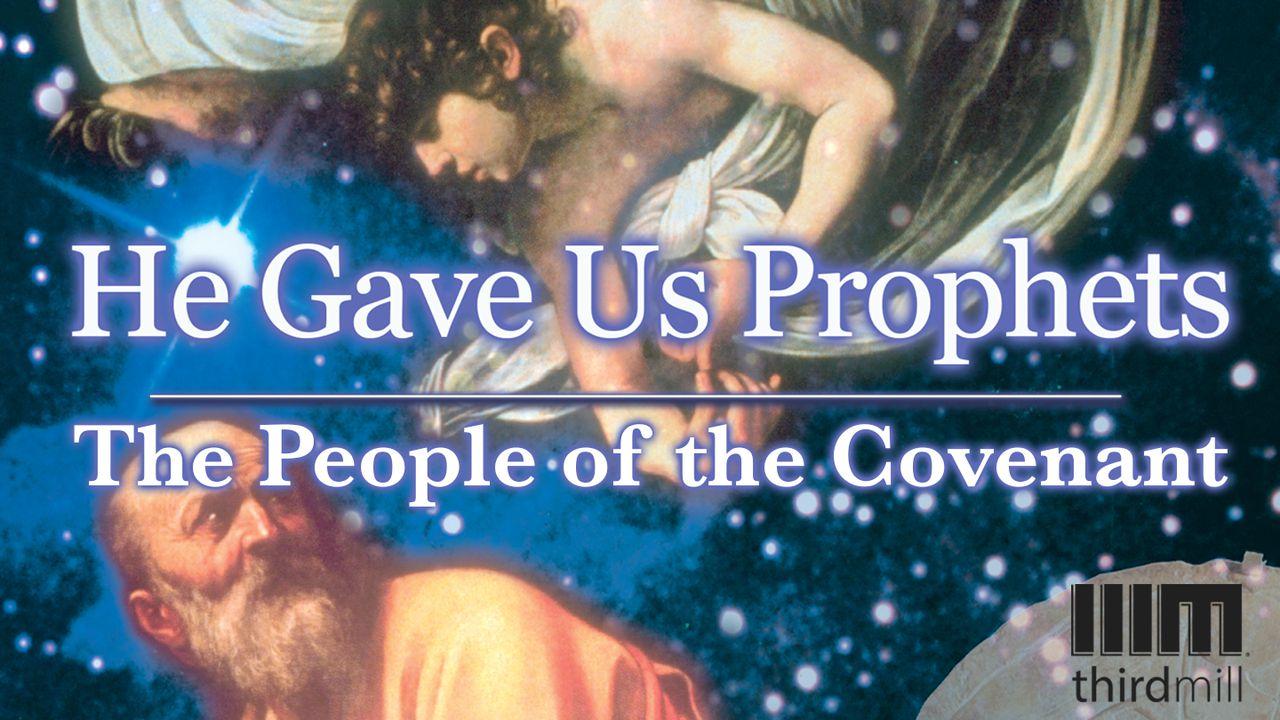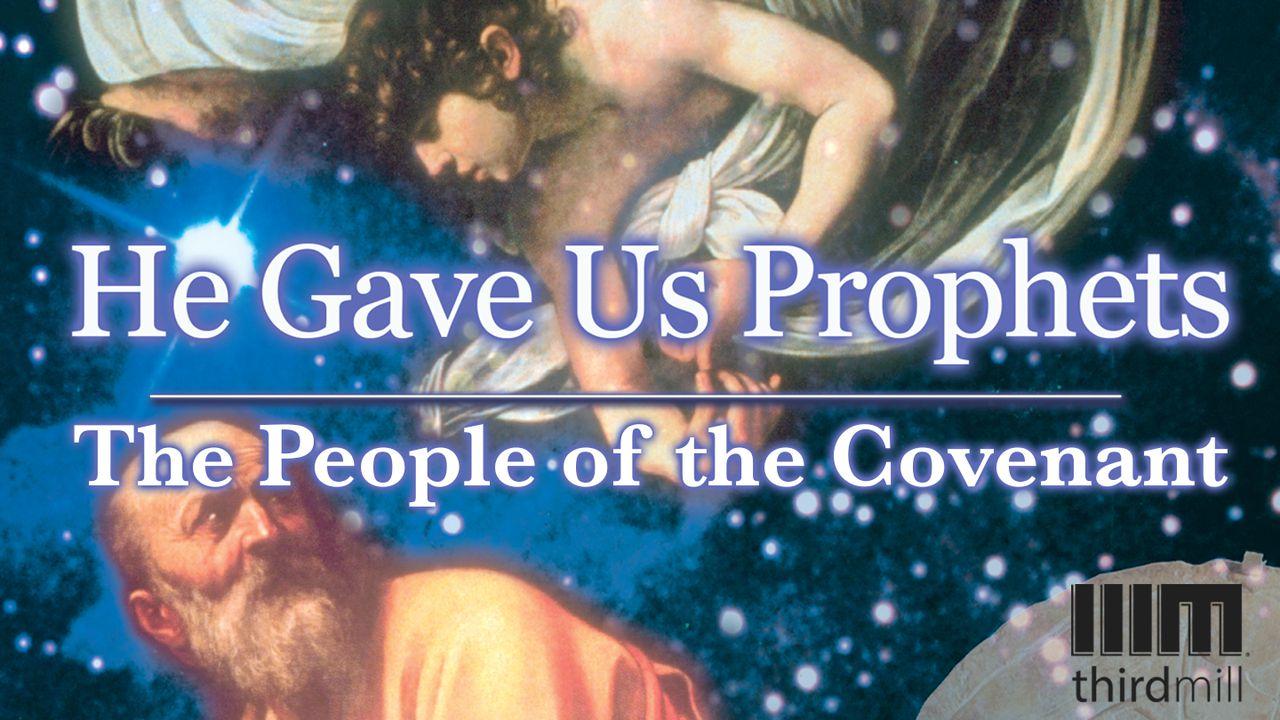Plan info
He Gave Us Prophets: The People Of The CovenantSample

Impact of Universal Covenants on OT Prophets: Isaiah 25:6-8
Now we have to ask a second question: how did the ministries of Old Testament prophets depend on these universal covenants? Now, we have to admit that the prophets of the Old Testament do not explicitly mention Adam and Noah very often. For the most part, the theological perspectives derived from the covenants with Adam and Noah lie implicitly behind what Old Testament prophets said. Perhaps the most important way in which prophets depended on these covenants is in their attention to Gentile nations.
As God’s covenant emissaries, Old Testament prophets focused most of their attention on the nation of Israel, but they were also emissaries to the nations of the world. As God told Jeremiah when He first called him to minister in Jeremiah 1:5:
> I appointed you as a prophet to the nations.
Prophets frequently addressed foreign nations because they were emissaries of the universal covenants with Adam and Noah.
The prophetic concern for the nations went in two directions. First, the prophets usually pointed out the sins of the nations and threatened God’s judgment against them. For instance, the entire book of Obadiah is devoted to exposing the sins of Edom and announcing divine judgment. Jonah reports that the prophet ministered to the city of Nineveh. Nahum declared God’s judgment against Assyria. Large portions of other books focus on the wrath of Yahweh coming against the nations other than Israel. Many passages make it clear that the prophets believed all people were sinful and subject to the judgment of God.
Although the theme of judgment was prominent in the prophets’ addresses to the nations, we must also remember a second theme, the theme of redemption for the nations. The prophets often spoke of a future time of great blessings for the nations of the earth. From their point of view, the future held a hope of redemption for every tribe and language. God’s plan was not that only one nation would be saved from the dominion of sin and death. Instead, in fulfillment of His original design for the human race, God always intended to redeem people from every nation.
For this reason, the prophets not only looked forward to a day of great blessing when Israel would be redeemed from exile; instead, many people from the Gentile nations would also participate in this great redemption from exile. For example, in Isaiah 25:6-8, the prophet announced that one day in the future:
> The Lord Almighty will prepare a feast of rich food for all peoples ... On this mountain he will destroy the shroud that enfolds all peoples, the sheet that covers all nations; he will swallow up death forever.
In Jeremiah 3:17 a similar theme appears:
> All nations will gather in Jerusalem to honor the name of the Lord. No longer will they follow the stubbornness of their evil hearts.
Many prophets announced that the day would come when even Gentiles would repent of their rebellion against God. They will come to Israel and find salvation from divine judgment. Now, of course, as Christians we know that this promise is fulfilled in the spread of the gospel of Christ throughout all the world. When Christ commissioned His apostles to go to all nations, He was fulfilling the positive hopes that the Old Testament prophets had for the nations of the earth.
Scripture
About this Plan

This reading plan examines humanity and covenant, Israel and covenant as well as salvation and covenant.
Related plans

Read the Book: July - September

TheLionWithin.Us: Choosing Your Circle: The Power of Influence

Wisdom for Sports Parents From the Old Testament

The God Who Sees You

The Well

Unorthodox

Prayer, a Privilege!

Help My Unbelief: How to Overcome Doubt and Increase Faith

The Father's Heart
